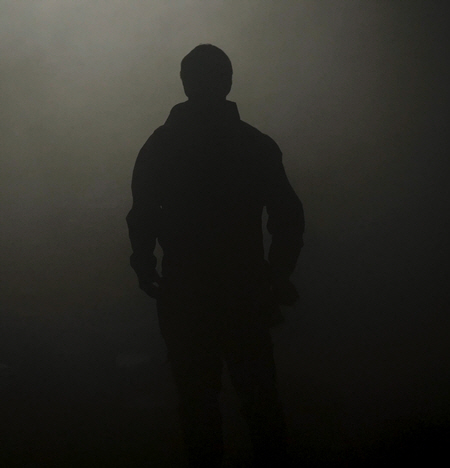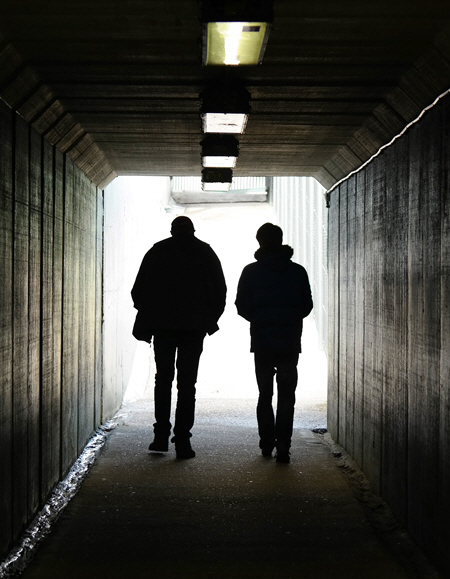 Life can’t be the same without them.
Life can’t be the same without them.
The unthinkable happened, and you stare into the abyss. Whatever we make of death, it’s one of the few events that all can be sure of experiencing one day.
However, nothing fully prepares us for what will happen to us when we lose a person we love dearly.
We all know it’s coming, and we all know it’s inevitable. We may have watched it happen to hundreds of characters in movies, plays, and books. We may all share a common understanding about how people generally respond to the dying of a loved one.
But when it hits close to home, it takes on a whole new meaning. The loss itself is painful enough, yet only time can reflect the life-changing effects that absence leaves behind.
Trevor’s* loss altered his early life.
For Trevor, when he was 13 years old, his father died of a sudden heart attack.
Trevors father, Kevin*, died alone in his home and was found by his best friend after he missed work for a couple of days, and no one knew. Trevor would be haunted by this image forever.
Kevin’s death meant that Trevor’s entire family had to move to a different city, resulting in the loss of all Trevor’s friends and dealing with an awful stepfather for years to come.
Joe’s* decision left emotional scars.
After battling a severe illness for several years, Joe’s brother went into a coma.
It fell in Joe’s lap to make the call to “unplug” his brother. As a result, Joe continues to suffer from emotional stress.
Joe can’t stop himself from crying at the thought of his brother.
Accidents can rob one’s joy.
While at work, Lisa* received an unexpected call.
While driving to work one morning, Lisa’s sister was killed in a car accident by a drunk driver.
As a result of her loss, Lisa continues to find no joy in things that used to bring her pleasure.
A mother’s grief becomes Marta’s* burden.
Marta never “really” knew her father as he died when she was two years old.
Her mother battled depression while trying her best to raise Marta.
Marta became her mother’s emotional crutch at an early age; as she grew older, Marta felt like the roles of mother and daughter reversed.
Nia* experienced her loss up close and personal.
Nia took care of her sister through her losing battle with cancer.
While growing up, she and her sister were best friends.
Unfortunately, Nia witnessed her sister’s slow decline until the end.
Thoughts of those last days are unbearable, and Nia gets intrusive thoughts of her sister’s sounds in response to the pain that she was suffering.
Money is a poor substitute for Rey’s* loss.
Rey’s life completely changed when he got the money from an insurance settlement from his father’s death in a work-related accident.
Although the monetary settlement affords Rey and his family with a better life, he feels pangs of guilt associated with this “blood money.”
No amount of money can replace the life that could have been if his dad was still here.
 Grief from loss is not easy to overcome.
Grief from loss is not easy to overcome.
Facing the aftermath is one of the hardest things you will ever have to do. Grief causes many questions to emerge, but satisfying answers are not always available.
Why did it have to happen the way that it did and when it did?
Could it have been avoided? What if I did something differently?
How are we supposed to go on? Will life ever feel the same as before? How long is it normal to feel this way?
What does their death say about the way they lived? Did they know how much they mattered to me?
Hard to deal with the reality of loss.
What’s worse, while you struggle to make sense of the new reality that their absence leaves behind, time seems to stop for you while life keeps happening all around you.
You witness the effects of the loss on people that you love who are also grieving and who you have never seen affected in this way.
A week or two of time off work should give you enough time to recover from your loss. But how are you supposed to carry on with your life and catch up with everyone else’s pace after this life-changing event?
Processing grief is not the same for everyone.
If you are fortunate enough to have a family and a community that shares your grief, you will know by now that everyone processes it differently.
Even though there is a shared experience, grief is an isolated process. The loss individually affects each person.
There are things about your grief process that you can’t or won’t share with friends and family because you want to protect their feelings and perhaps your reputation. You might play the “rock role” in your family. To protect the emotionally fragile individuals, you appear to maintain stability and not reveal your vulnerability.
Perhaps others are moving faster in their grief process and are ready to move on and “stop talking about it already.” In contrast, you keep things bottled up inside because no one knows how to respond to your waves of sadness when you share your feelings.
No one understands how much this hurts, thus leaving you stranded and all alone.
 Therapy can help you get back on your feet.
Therapy can help you get back on your feet.
A trained professional in grief counseling can help you overcome your grief and get you back on the path where time moves with the rest of the world.
The process is done without rushing you and with the utmost care, warmth, and respect. We allow time for you to examine every detail and memory important to you. It is a time to process all those memories, including joy, regrets, unresolved guilt, shame, trauma, and lingering anger you’re your loss.
Therapy is not a place to get over grief and loss. Instead, it helps you learn to live with it in a better way without eliminating the memory of the departed.
Let us help you process your grief and loss.
If you are ready to begin the process of better resolving your grief, call (917) 268-9213 or book online today.
*Names changed to preserve client confidentiality.

